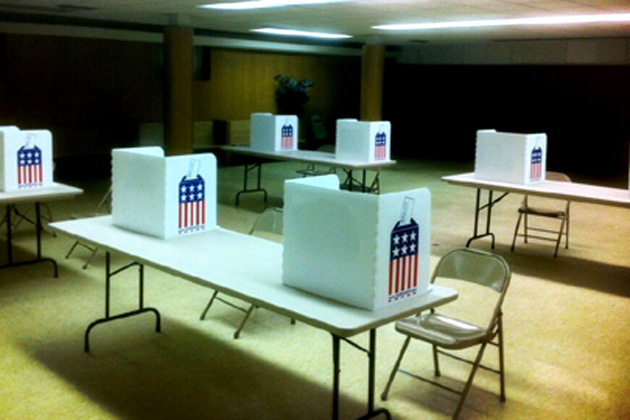
(WJBC file photo)
By Greg Bishop/Illinois Radio Network
SPRINGFIELD – Be prepared to publicly declare a political party in front of the election judges, and others in line, when you go to vote in Illinois’ primary Tuesday.
Drew Penrose, law and policy director of the non-partisan group Fair Vote, said primaries where everyday voters participate in elections were meant to battle corrupt political parties selecting candidates and office holders without voter input.
Some states have closed primaries where voters register for a party before voting. Penrose said Illinoisans on primary day do things differently.
“It’s the only state that I’m aware of where you go, you declare a political party affiliation and then the person who is handing you a primary ballot has to announce in a voice loud enough for people to hear in the polling place which party affiliation you are affiliating yourself with,” Penrose said.
Counties’ elections offices also compile lists of voters and what party they’re affiliated with if they voted in a primary. That can also disenfranchise voters who don’t want to be singled out for publicly affiliating with one party over another.
Penrose said with how Illinois’ political districts are, most primaries for local offices practically determine the outcome of the general election because of a lack of real competition.
“It doesn’t have to be the case that all or most elections are decided at the primary election stage,” Penrose said.
Another problem with Illinois’ primary system, Penrose said, is it freezes out independent voices that may have important policy issues to add to the conversation that aren’t being addressed by the major party candidates.
Illinois’ political system is categorized into established parties and non-established parties. The established parties, the Republicans and Democrats, get taxpayers to pick up the tab for their primary, like Tuesday’s election. The non-established parties select their candidates internally.
Penrose said being heard is essential in any election cycle.
“Third parties and independent voters are often not included in a big way, especially in the primary stage,” Penrose said.
Penrose said changing the process to a rank-choice system, where voters select and rank multiple candidates in one election, can add more voices and ideas to the process “where there are more than two choices on the ballot, where they’re allowed to participate in debate, and where they’re not ashamed as spoilers and told to get out of the election.”
Penrose said this rank-choice voting avoids the need for any runoff election, which can cost taxpayers more for a follow-up election featuring the top two votegetters. For information on rank-choice voting, visit FairVote.org.
Illinois voters can request a non-partisan ballot on primary day if there’s a ballot referendum in their area, but that will not have any choices for political office, only referendum questions.






